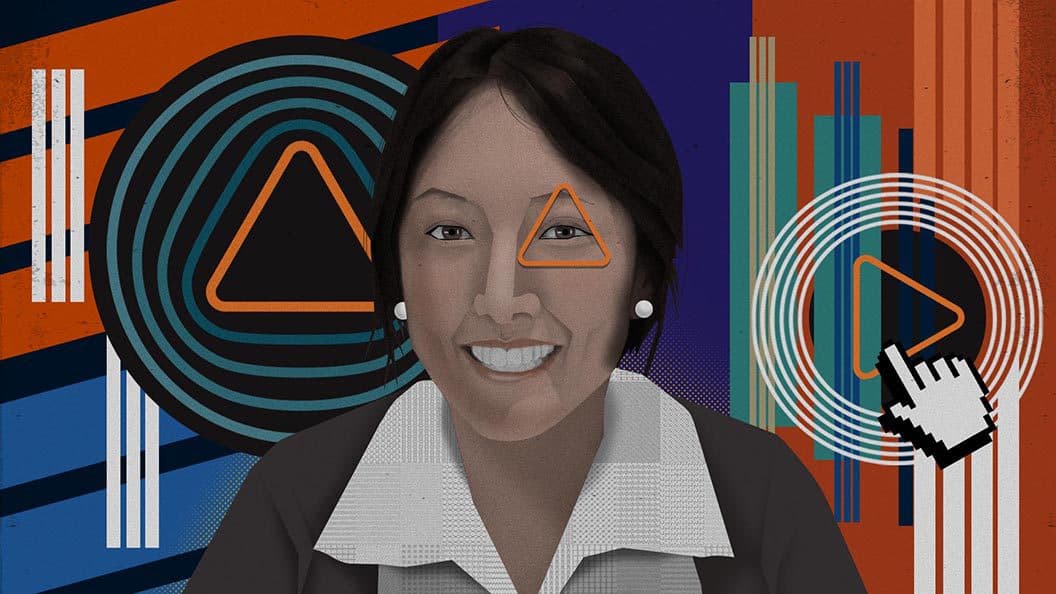Anchorage’s Jennifer Lee on the Shrinking Digital Assets Divide
Anchorage raised $80 million in new funding in February. Following its new status as a “crypto bank,” Lee’s goals are now making sure its tools and processes “are able to—in a very streamlined fashion—be able to operate as a bank.”

Jennifer Lee, Anchorage; Blockworks Exclusive Art by Axel Rangel
- Anchorage’s head of compliance, Jennifer Lee, was previously at Goldman Sachs for 10 years
- The way Anchorage identifies, measures, monitors and mitigates risk is largely similar to the practices of traditional financial institutions, Lee said
The divide between digital finance and traditional finance is still distinct. The closer the two inch toward convergence, it’s clearer that the differences are few, according to Anchorage’s head of compliance, Jennifer Lee.
“The main misperception is that there’s a big difference between digital assets and traditional finance,” Lee told Blockworks. “When you look at the fundamental risk, it’s all the same.”
Specifically, the way Anchorage identifies, measures, monitors and mitigates risk is largely similar to the practices of traditional financial institutions. As cryptocurrency companies gain more regulatory statuses, approvals and recognition, the lines are blurring, she said.
Going rogue
Lee joined Anchorage in November 2019. Previously, she worked in compliance at Goldman Sachs for 10 years.
“A lot of my friends were kind of credulous,” she said. “They thought I was going rogue going from Goldman to a crypto startup and I could tell they were a bit doubtful about what would be happening in terms of my career.”
Anchorage is a digital asset custodian that received the first national trust charter from the US Office of the Comptroller of the Currency at the beginning of 2021. The charter allows it to become a regulated “crypto bank,” and holds it to a higher level of regulatory requirements.
Lee said the charter, “enables us to broaden our services to allow for a broader spectrum of investors to custody, trade or even lend in a very safe manner. That’s really at the heart of what we’re trying to do here at Anchorage.”
Anchorage serves institutions exclusively though its customers range from young digital-first banking apps all the way to bulge bracket banks. Anchorage also partnered with Visa to develop an API that allows banks to offer their customers bitcoin trading.
Crypto comforts
Today, Lee’s job is to assure clients about Anchorage’s risk-mitigating procedures, including finding new tools for risk mitigation and walking them through processes. Both are key to making clients feel comfortable when moving into cryptocurrency.
For years cryptocurrencies carried a highly negative reputation in the media and among banks. Early evangelists keen to see bitcoin put traditional banks out of business made the reputation worse.
While many bank industry insiders (particularly at Goldman) saw the potential for bitcoin and its underlying technology early, others saw the anonymity of cryptocurrency transactions, security vulnerabilities in exchanges and other new systems, ransomware, and the use of unregulated currency to pay for illicit activity as major AML (or anti-money laundering) threats.
“That’s one concern that comes up very frequently,” Lee said of AML. “In terms of the onboarding process, [clients ask] what does that look like? Does it look similar to the way traditional banks would onboard? What are the risks we look at? Do we conduct risk assessments? Do we have the same kind of infrastructure and regulatory requirements against which traditional banks are upheld? The answer is yes, definitely.”
Anchorage raised $80 million in new funding in February. Following its new status as a “crypto bank,” Lee makes sure its tools and processes “are able to—in a very streamlined fashion—be able to operate as a bank.”
Looking toward the future for digital assets, Lee said that as larger traditional banks continue adopting “all things crypto,” they’re going to “become an integral part of everyone’s investment portfolio.” Then, she expects to see the perceived difference between traditional finance and digital finance will diminish even more.
Casey Wagner contributed to the reporting on this story.






